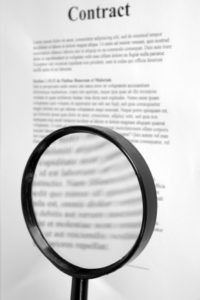5 Tips to Obtain the Best Auto Insurance Rate
 In the United States, automobile insurance is a legal requirement for all drivers. Unfortunately, this mandatory prerequisite can be expensive. So if you want to save money on your car insurance bill, make sure you search widely, and explore multiple insurance companies and their offerings.
In the United States, automobile insurance is a legal requirement for all drivers. Unfortunately, this mandatory prerequisite can be expensive. So if you want to save money on your car insurance bill, make sure you search widely, and explore multiple insurance companies and their offerings.
If you don’t have the time to do in depth research into insurance companies and insurance policies, type your ZIP code into the FREE search box, and we will send you quotes galore today that will match your needs and budget!
According to a 2011 Forbes magazine article, insurance rates have been rising quite precipitously in the past years. Between 2008 and 2010, the auto insurance industry has ratcheted up its rates by almost 10%. And, according to industry insiders, drivers can anticipate further raises in the next few years.
Given such expected trends, it is imperative that all drivers protect their wallets by understanding what auto insurance means, and how the insurance industry operates to find different means of saving money.
The Nitty Gritty of Car Insurance
Experts at the Insurance Information Institute clearly articulate that almost all states require drivers to either buy auto insurance or provide proof of financial responsibility, which would allow them to pay claims in case of an automobile accident.
Car insurance is meant to protect you and your family from financial disaster. While most states have a minimum amount they require drivers to purchase, it is generally recommended by insurance experts that you get liability minimums of $100,000/$300,000 for bodily injury protection per person and per accident, respectively.
A basic auto insurance policy has several different kinds of coverage, not all of which are mandatory. The cost of each form of coverage is calculated separately.
The different forms of coverage are as follows:
Bodily Injury Liability: Covering any bodily injury caused to another driver, pedestrian or other passenger, this form of insurance is meant to pay all medical expenses incurred due to the accident. It also covers other expenses such as lost wages. If the losses exceed the limit of your policy, then you are financially responsible and are required to pay for the remaining amount on the medical bills.
Property Damage Liability: As the name indicates, this covers you for any repair or replacement of property that is damaged or totaled in an accident where you are at fault.
Besides the other cars impacted in the accident caused by you, it also pays for damages to fences, sidewalks, traffic lights, homes etc.
Medical Payment or Personal Injury Protection (PIP): This is meant to cover all medical expenses incurred and to treat any injuries to you or your passengers that were caused by an auto accident, as well as funeral costs.
Collision Coverage: Required by lending agencies if you are financing a car purchase, collision coverage pays for any and all damage done to your car. Under most policies that carry collision coverage, if your car gets totaled, the insurance company will pay the market value of your car.
Comprehensive Coverage: This protects you in case your car gets damaged or destroyed by any other cause but a collision. Whether it is dented by a falling branch or totaled by a tornado, comprehensive coverage will pay to repair or replace it.
Comprehensive coverage pays for damage by Acts of God that include floods, tsunamis, snowstorms, hurricanes, fire, volcanoes, tornados, and earthquakes. It also swings into play if your car is stolen, vandalized, or damaged by a runaway shopping cart, among other damaging causes.
 Uninsured/Underinsured Motorist Coverage: With the troubled economy, many people are unable to pay for car insurance. According to MSNBC, one out of every six drivers is likely to be uninsured.
Uninsured/Underinsured Motorist Coverage: With the troubled economy, many people are unable to pay for car insurance. According to MSNBC, one out of every six drivers is likely to be uninsured.
So this form of insurance pays for medical bills incurred in an accident caused by a driver, who is either not insured or underinsured. Additionally, it also covers injuries caused by hit-and-run drivers.
Carefully consider all the different forms of coverage available before deciding on how much and which form of coverage you are going to get. Whether you choose the minimum amount mandated by your state, or you want a larger umbrella of coverage, it is important to take every step possible to get the best policy at the lowest price possible.
Tip 1: Comparison Shopping
Whether you are buying an expensive watch, getting a mortgage or choosing a loaf of bread, it’s strategic to compare all your choices so that you get the best deal. Similarly, when you are buying auto insurance, make sure you evaluate quotes from different competing insurance companies.
While you will be surprised by the range of prices for the same policy, read the fine print carefully. Sometimes the “same” policy could have “similar terms” that might hold a world of difference!
Most people automatically renew their auto insurance policies but comparison shopping for auto insurance should be a yearly must-do. Sometimes insurance companies might match a better deal from another company, just to keep your business.
If not, with insurance companies coming up with new deals and discounts regularly, you might be able to slash your bill by a substantial amount.
Tip 2: Research the Insurance Company
While getting cheap coverage is important to every driver, researching the insurance company that is providing the policy is an important step. Make sure you look at issues such as customer service, and claim processing time, among others. Reading customer and consumer group reviews can be very helpful.
Financial information about the company is also an essential indicator. It tells you what the liabilities and debts the company has, and its ability to service them. A foremost resource for company financial information is A.M. Best.
Tip 3: Discounts Galore!
You can get a range of auto insurance discounts, but you must ask for them!
From good student discounts, good driver discounts, to low mileage discounts, you can save a ton of money if you ask the right questions.
Do your research and look for different kinds of discounts. Certain groups such as veterans can get a special rate decrease if they insure through certain companies or organization.
 If you have a new teen driver, your insurance bill will skyrocket. But if you get the young driver to take an approved driver education course, watch specific DVDs about safe driving and successfully take driver education tests, it can substantially reduce your insurance expenses.
If you have a new teen driver, your insurance bill will skyrocket. But if you get the young driver to take an approved driver education course, watch specific DVDs about safe driving and successfully take driver education tests, it can substantially reduce your insurance expenses.
Insurance companies give better rates to certain professions such as doctors, engineers, and teachers. Additionally, college graduates get better rates as do married persons.
Don’t forget to ask about multi-car insurance discount as well as multi-policy discounts. Insurance companies give hefty reductions if you cover all your family cars with them, and stay with them to get other forms of coverage such as home insurance and life insurance.
Tip 4: Avoid Making Monthly Payments
Insurance companies prefer customers who make a lump sum payment or bi-yearly payments. With some cases, making a one-time payment can get you an additional discount.
But as the economy falters and people find it harder to make a huge down payment towards their insurance, an increasing number of insurance companies are extending the option of monthly payments.
While this makes it more manageable, you must be aware that such service comes with an extra charge. And that charge can substantially raise your total bill, albeit it will be spread out through the year.
If you don’t have the option of making larger payments, then make sure you set up some system of a reminder, which can either be automatic deduction from your bank account or a monthly email from your insurance company. Missing a payment can mean hefty fines, as well as the danger of being dropped by the insurance company.
Tip 5: Take Care of Your Driving Record and Your Credit Score
Many factors impact your auto insurance rates. While your age, gender, location and marital status are important markers, it is your driving record and your credit score that are central to your insurance rates.
Your driving record and insurance record should be as spotless as possible. The fewer traffic violations, tickets and claims you have, the better it is.
Being a responsible driver will keep you and your family safe, while getting you attractive rates.
Your credit score is another important evidence of financial responsibility. The higher your credit score, the better your insurance rates will be since insurance companies use your FICO score to see how timely you have been with your other monthly or yearly payments.
Buying Auto Insurance

Whether you head to your computer for research and competitive quotes, talk to insurance agents on the phone for direction, or look for guidance from your friends and family, be diligent about reading all the fine print before you sign the final document from the insurance company.
You must remember that your insurance policy is a legal document. So once it is signed and sealed, you are bound to it for the duration of the policy.
If you are running in circles from all the information and advice about insurance, type in your ZIP code into the FREE search box, and we will send you a long list of clearly explained quotes that are likely to match all your coverage needs!
